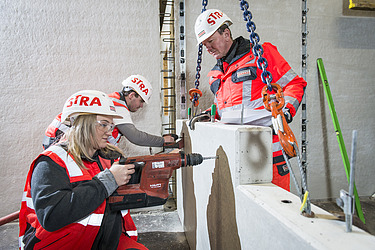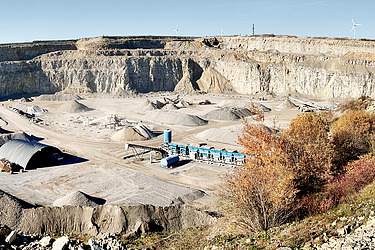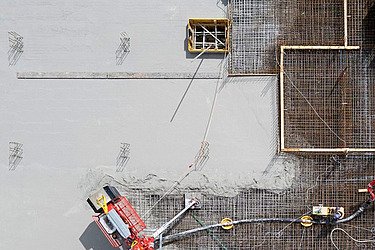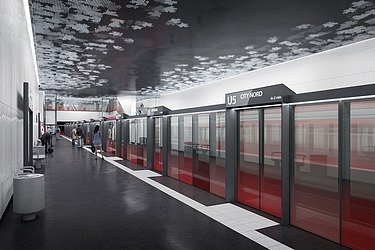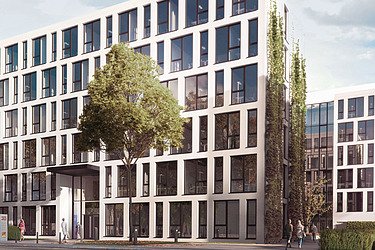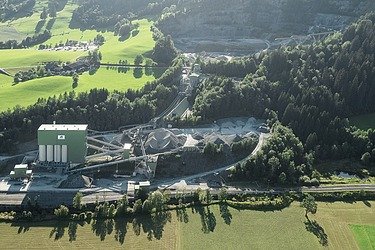Decarbonisation of construction

The immense global emissions of carbon dioxide (CO2 ) and other greenhouse gases in the atmosphere are causing progressive global warming and the associated climate change. The reason for this is a widespread global economy and way of life that is still largely based on the use of fossil fuels. As an energy-intensive industry, the construction sector has a significant share in global CO2 emissions.
This means that it also plays a key role in the necessary decarbonisationin the fight against climate change. As a leading construction company, STRABAG is taking on this challenge and actively assuming responsibility for CO2 emissions over the life cycle of construction.
What does decarbonisation mean?
With our sustainability strategy adopted in 2021, we have set ourselves the ambitious goal of achieving climate neutrality across the entire construction value chain by 2040 - from raw material extraction to building operation. Of course, not everything is in our hands alone. Decarbonisation is - simply explained - the path to the goal. This means systematically substituting and reducing fossil fuels by using climate-friendly, ideally CO2 -neutral alternatives - in short, saying goodbye to oil, coal and natural gas as energy sources. This is a huge challenge that we can only master together: in cooperation with our clients and partner companies in the supply chain, legislators and authorities.
CO2-neutral construction as a goal
Decarbonszation is a high strategic priority for STRABAG. We are pulling out all the stops across the Group to minimize CO2 emissions, or at best to avoid them altogether. Our decarbonisation measures are diverse: For example, we are systematically focusing on the use of renewable energies (photovoltaics, wind power, etc.). Together with partners, we are driving forward the testing of innovative and sustainable drive concepts and fuels (e.g. green hydrogen, electric, HVO diesel) for construction machinery. We are gradually electrifying our vehicle fleet and pursuing high decarbonisation targets in the planning and construction of new Group buildings, for example by optimizing energy requirements and consumption. And together with our clients, we are implementing construction projects with targeted climate-friendly building materials (e.g. wood, CO2 -reduced concrete and steel).
